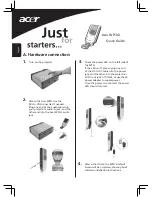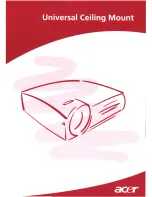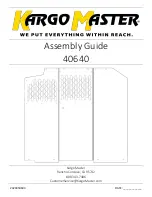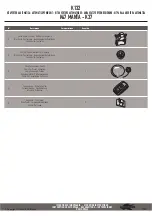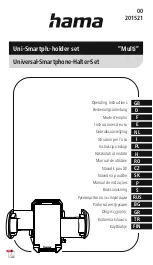
Oxymax H COS21D
Maintenance
Hauser
23
3.
Connect the sensor to the transmitter and switch on the transmitter.
4.
Switch-on the transmitter.
If you connect the sensor to the transmitter, polarization is automatically performed after
switching on the transmitter.
5.
Wait for the polarization time to end.
"
Caution!
• When you remove the sensor from the medium, protect the sensor from strong sunlight.
• Make sure you comply with the instructions for commissioning and calibration in the
Operating Instructions of the transmitter.
6.3
Calibration
Calibrate the sensor (air calibration) immediately after the polarization time has elapsed.
The calibration intervals depend heavily on:
• The application and
• The installation position of the sensor.
The following methods help you determine how long the calibration intervals should be:
1.
Check the sensor one month after its being put into operation by taking it out of the fluid,
drying it and then measuring the oxygen saturation index at air after 10 minutes.
Decide using the results:
a. If the measured value is not at 100 ± 2 %SAT, you have to calibrate the sensor.
b. Otherwise, double the length of time to the next inspection.
2.
Proceed as per Point 1 after two, four and/or eight months. In this way, you can determine
the optimum calibration interval for your sensor.
!
Note!
Be sure to calibrate the sensor at least once a year.
7
Maintenance
Maintenance work must carried out at regular intervals. To ensure that it is carried out, we
recommend you enter the maintenance dates into an operations logbook or in an operations
calendar in advance.
The maintenance cycle primarily depends on:
• the system
• the installation conditions and
• the medium in which measurement is taking place.
The following activities must be carried out:
• Cleaning the sensor





























